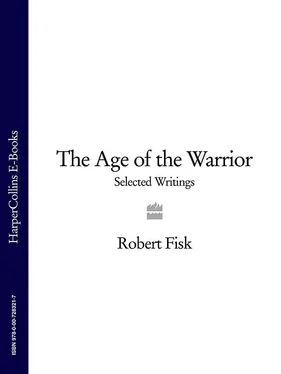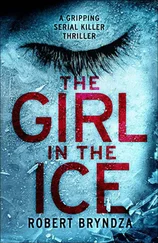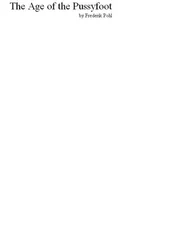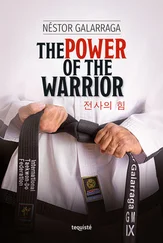Robert Fisk - The Age of the Warrior - Selected Writings
Здесь есть возможность читать онлайн «Robert Fisk - The Age of the Warrior - Selected Writings» — ознакомительный отрывок электронной книги совершенно бесплатно, а после прочтения отрывка купить полную версию. В некоторых случаях можно слушать аудио, скачать через торрент в формате fb2 и присутствует краткое содержание. Жанр: Политика, на английском языке. Описание произведения, (предисловие) а так же отзывы посетителей доступны на портале библиотеки ЛибКат.
- Название:The Age of the Warrior: Selected Writings
- Автор:
- Жанр:
- Год:неизвестен
- ISBN:нет данных
- Рейтинг книги:4 / 5. Голосов: 1
-
Избранное:Добавить в избранное
- Отзывы:
-
Ваша оценка:
- 80
- 1
- 2
- 3
- 4
- 5
The Age of the Warrior: Selected Writings: краткое содержание, описание и аннотация
Предлагаем к чтению аннотацию, описание, краткое содержание или предисловие (зависит от того, что написал сам автор книги «The Age of the Warrior: Selected Writings»). Если вы не нашли необходимую информацию о книге — напишите в комментариях, мы постараемся отыскать её.
The Age of the Warrior: Selected Writings — читать онлайн ознакомительный отрывок
Ниже представлен текст книги, разбитый по страницам. Система сохранения места последней прочитанной страницы, позволяет с удобством читать онлайн бесплатно книгу «The Age of the Warrior: Selected Writings», без необходимости каждый раз заново искать на чём Вы остановились. Поставьте закладку, и сможете в любой момент перейти на страницу, на которой закончили чтение.
Интервал:
Закладка:
I had nothing against the Chron . When Liverpool University offered me a place to read English, the editors cheerfully accepted my resignation and wished me luck in my studies. When Liverpool then unforgivably decided that – without O-level maths – they couldn’t after all give me the promised place, John Brownlee equally cheerfully offered me my job back. Then when Lancaster University gave me a real undergraduate place, Brownlee sent me off again with his best wishes. He later wrote me a stunning reference for the Sunday Express which impressed its late, irascible editor, John Junor. Harland overrode my desire to stay on the paper. ‘Don’t be a fucking eejit,’ the coal miner’s son solemnly told me. ‘Go do your studies, Bob, and get a degree.’
Which is what I did. Within months, I was studying linguistics and reading Noam Chomsky and learning, thanks to David Craig’s English lectures on Dickens, of the social devastation which the Industrial Revolution had spread across northern England, indeed across the very area where I had been a cub reporter. The decaying mines, the growing unemployment, the doomed shipyards – even the rotten wood of the Blyth staithes – suddenly made sense. But I had to go to university to understand this. Journalism was about history. But not in the Chron .
And in the end, it was this thought – the idea that language and history shape our lives – that lured me back this month to the north-east of England. I had a suspicion that the language we were forced to write as trainee reporters all those years ago had somehow imprisoned us, that we had been schooled to mould the world and ourselves in clichés, that for the most part this would define our lives, destroy our anger and imagination, make us loyal to our betters, to governments, to authority. For some reason, I had become possessed of the belief that the blame for our failure as journalists to report the Middle East with any sense of moral passion or indignation lay in the way that we as journalists were trained.
When I returned, a cold, heavy rain was falling across Blyth. The old harbour was a dark, mud-sided, empty lagoon. There were no more shipyards. The mines had closed – all but one pit up the coast – and the power station, glowering through the murk on the other side of the river, had been decommissioned. At the end of Middleton Street, the newsagent – grills on the windows, damp stains covering the ceiling – told me Blyth was still dying. ‘Fourteen per cent unemployment, thirty-four drug deaths in four years,’ he said. ‘No future.’ I bought the Chronicle . The wooden staithes had disappeared. So had the railway. The beach garden where I used to read was still there, its curved stone balustrade broken and collapsing into the sand.
I knocked on the door of number 82. My landlady, Mrs Hamilton, was long gone. The couple who now lived there allowed me to climb the stairs, turn right at the top and push open the little cubby-hole where I slept almost forty years ago. Seven-by-five. I hadn’t got the measurements wrong. There were bookshelves in the room now, newly painted, centrally heated, the old gas-pipe concealed within the wall. The room where I had eaten my bacon breakfasts – Mrs Hamilton provided full board – contained a magnificent marble fireplace which I could not remember. The new owners of number 82 were – they were the first to proclaim the fact and I saw the proof on the living room table – Independent readers. They never bought the Chronicle . Was there, I wondered, a message here?
In the car, the rain guttering down the windscreen, the same old grey streets shimmering through the glass, I opened the Chronicle . Nothing had changed. All that follows came from one single issue. ‘Bosses leading a management buyout of stricken shipyard Cammell Laird say a £2 m damages claim from former workers could scupper the bid.’ Key words: Bosses. Stricken. Scupper. Bid. ‘A pair of high-flyers will be winging their way to France for the most gruelling cycle race in the world.’ Key words: High-flyers. Gruelling. ‘A mum of three who lured a teenage girl babysitter into a seedy sex session with a stranger she met through an internet chatroom has failed in her bid to cut her jail term.’ Lured. Seedy. Bid. ‘Jetaway MPs have been condemned for heading off on foreign jaunts rather than holidaying in the North-east to help the region’s ailing tourist industry.’ Sympathetic though I was to the MPs as I glanced at the weather grizzling down outside my car, I got the message: Jet-away. Jaunts. Ailing. ‘Police hunting the murderer of Sara Cameron have spread their net abroad.’ Yes, almost forty years since I’d been writing this crap, the cops were still ‘spreading their net’ and – I had little doubt – would soon be ‘narrowing their search’ or ‘stepping up’ their hunt for Sara’s killer. It was left to the successor of the old weekly Blyth News – now a free-sheet with the immortal title of the News Post Leader – to tell me that ‘plans to build a housing estate on scrubland in Blyth Valley have been put on ice…’
I drove to Morpeth to see the old magistrates court, and Gateshead, and back and forth over the Tyne bridges where I once had my picture taken in a waistcoat, and I found that the Rumbling Tum was now part of an underground bus station, that the slag-heaps had been largely ‘greened’, that the smoke had gone. Yes, that great, greasy, wet smoke that I breathed day and night – even in my unheated bedroom – had vanished. Perhaps smokeless coal and gas has its advantages. Or, as I grimly thought, perhaps there’s nothing left to burn.
Jim Harland was leaning over his front wall when I drove up. Plumper, a little jowled, eyes sharp as coals, Sean Connery features still in evidence, along with his tongue. ‘You’re the man who missed the story in Blyth port on your day off,’ he growled. The sun had come out. He had set up the annual town fair and today – deus ex machina – was town fair day. There was a fire engine and pin-bowling and pop-singing and dancing by a team of overweight cuties in old US army uniforms – I’m still puzzling the meaning of that one – and a ball-in-the-tub throwing session (which Fisk lost) and an awful lot of very tough-looking mums and dads with sallow faces and sad smiles and, I thought, a life of great hardship behind them. Blyth, Harland told me, was becoming a great dormitory town for Newcastle. Pity they’d torn up the railway. But the sleeping bit I could well understand.
Harland is a big man, ‘Big Jim Harland’ we used to call him – he went on in later years to work for the Mirror , then the BBC – and he propelled me towards the Federation Club where pints moved like quicksilver around a room where huge ex-miners and ex-shipyard men kept winning all kinds of bingo games. I had never seen so many £5 notes. Life had been good to Harland and his wife Rosemary and we walked back to his home – just across from my old ‘digs’ – for lunch. ‘Space was the problem for us in journalism, Bob,’ he said. ‘I was taught at sixteen that you had to economise on space. We couldn’t write “Mrs S, who was 23 years old”, I had to write “23-yearold Mrs S”. But if we said what we thought, well, we’d have called that bias. We could say “this is what I saw” but not “this is what I feel I saw”. The journalists who trained us were regional journalists – and they taught us what they knew, the way they had been trained.’
But slowly, as Rosemary made the lunch in the kitchen, Harland revealed more about Blyth. He thought Margaret Thatcher and Arthur Scargill had done most harm to the town. But he knew much that I had not known when I worked there. The town clerk who had been such a classical scholar – he had lived near my digs but was now long dead – had been on the make. The police chief – the man who was the target of the gay man in the court but now also dead – had been in the habit of ringing up landlords in the early hours of the morning for a drink, forcing them to open their pubs at 6 a.m. for the local, newly off-duty, cops. ‘No, we didn’t write this,’ Harland said. ‘These people fed us. They’d help us. The policeman who’d want an early morning drink would also tip us off on stories. We had to talk to everyone, the town clerk, the police, the fire brigade… Then there was child abuse. There was a lot of it here. A terrible thing. But the social services wouldn’t talk to us. They said all their enquiries were confidential, that we didn’t have the right to know what they had learnt. And so child abuse went on. I only realised the state of things when a cricketer I knew made a comment about his daughters and I realised it was a common thing. But we accept the “privacy” of the social services. And in court, we reported “indecency with a minor”. Those were the words we used.’
Читать дальшеИнтервал:
Закладка:
Похожие книги на «The Age of the Warrior: Selected Writings»
Представляем Вашему вниманию похожие книги на «The Age of the Warrior: Selected Writings» списком для выбора. Мы отобрали схожую по названию и смыслу литературу в надежде предоставить читателям больше вариантов отыскать новые, интересные, ещё непрочитанные произведения.
Обсуждение, отзывы о книге «The Age of the Warrior: Selected Writings» и просто собственные мнения читателей. Оставьте ваши комментарии, напишите, что Вы думаете о произведении, его смысле или главных героях. Укажите что конкретно понравилось, а что нет, и почему Вы так считаете.












